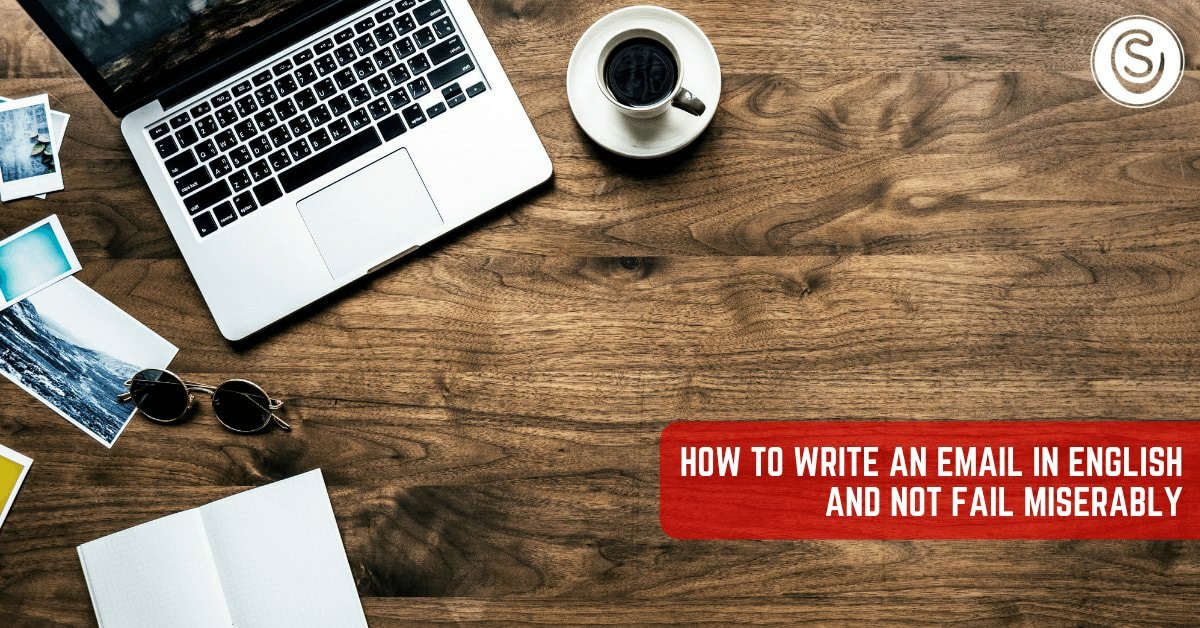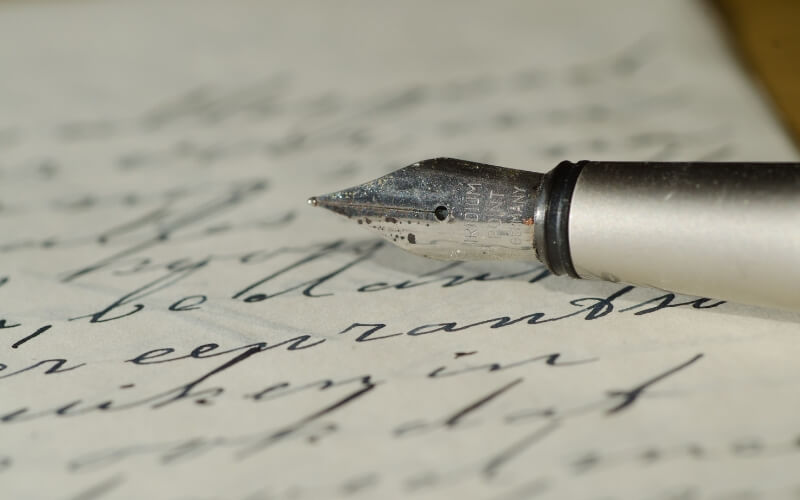Avtor: JASON BLAKE
“Hey, mr. Smit,
I am writing to you–“
I am writing to you–“
How does this e-mail continue? It doesn’t matter. It doesn’t matter because if you’re writing to apply for a job or anything that requires a smidgen of written English, you’re no longer on the list of hireable applicants. If you’re writing to file a complaint or looking to resolve a tax problem, your e-mail might “accidentally” get lost or end up on the bottom of the pile.
If I am the mister on the receiving end, you lost me at “Hey, mr. Smit.” You lost me because my name is probably “Smith,” not “Smit.” You lost me because “Hey” is a little too casual for a first e-mail. And you lost me because mister requires a capital letter here because it’s an honorific that comes before a name. (That’s why we say, “Professor [capital letter] Klump is a professor in a film; Mrs. [capital letter] Robinson is a mistress in an older film.”)
This lack of capitalization is the most annoying and persistent error among Slovenians writing in English. It looks sooooooooooooooooooooooooo weird. Like skipping the little hats over the first and third letters in “Žižek.”
If you write “mr. Smith,” your e-mail recipient might think: “This guy/gal doesn’t know when to use a capital letter. This guy/gal clearly has no grip on English.” Untrue, no doubt; unfair, I’m sure, but understandable.
The point of this temporary obsession with capitalization is this: In formal e-mail correspondence, little things matter.
Another guideline: Think of e-mail as being closer to an old-fashioned letter than to an SMS or casual conversation. Keep that in mind and you’re halfway to writing better e-mails. They will sound more lovely, more respectful, more… Whatever. They will be better because you’re more likely to get what you want or need.
When you write your e-mails:
- Err on the side of formality.
- Keep your sentences and paragraphs brief.
- Keep etiquette in view.
Err on the side of formality.
Though patronizing or affected in conversation, “Dear” is fine in English correspondence. In other words, “Dear” means nothing in English.
Speakers of Slovene, German, and French have difficulties understanding that an e-mail beginning “Dear Sally” can be aimed at: a loved one, a stranger, an enemy. Know and believe that “Dear” in English has not a whit of dragi-ness, Liebe-ness, or cher-ness. Life is short. Who wants to puzzle over the first word every time an e-mail has to be written?
“Hello,” or “Good afternoon,” or “Hi,” or “Hey,” might be alternatives if you’re writing to dynamic, synergetic, proactive, hipster, bleeding-edge, innovative, buzz-word-using types, but even in that case, there’s a problem. Should you add a comma after the salutation?
Logic and traditional comma-placement tell me a comma is needed after “Hello” or “Hi.” And yet… whenever I receive an e-mail that starts, “Hello, Jason,” I think, “This guy irons his socks. That comma is just a little too precise.”
Allow me to quote from Gyles Brandreth’s Have You Eaten Grandma? (a great and funny guide to English):
Think before you place your comma. Beginning an email like this is fine:
Hi Gyles,
Beginning it like this is sinister:
Hi, Gyles,
Beginning it like this suggests not so much a greeting as a reprimand:
Hi, Gyles.
Hi Gyles,
Beginning it like this is sinister:
Hi, Gyles,
Beginning it like this suggests not so much a greeting as a reprimand:
Hi, Gyles.
So, “Dear…,” is the easiest option, especially for a first formal e-mail.
If you’re not writing to title-giddy continental Europeans (“Prof. Jones” or “Dr. Schnitzelrahmen,” or the absurd “Ms. Ogorčen, B.A.”), it’s safest just to write “Dear” and follow it with the full name. “Dear Janez Novak” is formal yet personal, respectful yet safe.
As well, using a full name gives you a get-out-of-gender-free card. That’s handy when you’re writing to a stranger. Not everybody identifies with “Mr.” or “Mrs.” or “Ms.” or “Miss.” A Saša, Jasmin, Vanja, Erin, Marie, Ira, or Blake (Lively or Edwards?), meanwhile, might be male or female. Exotic names are particularly thorny – and remember that your own name will sound exotic to somebody, somewhere in the world.
As you’ve surely noticed, e-mail correspondence relaxes in a hurry and greetings and names often fade away by the third or fourth e-mail. A formal e-mail exchange can go from “Dear Prof. Smith” to “Hi John” to “Hey John” to no-time-for-hi within a day.
Regardless, leave it to the other side to get chummy. Let them make the first move. If they respond to your “Dear John Smith,” with a cheery “Hey, Joe,” feel free to hey them back. If they sign off, “Best, John,” that’s permission to switch to the first name. If you’re not sure, start with “I hope first names are acceptable.”
Keep your sentences and paragraphs brief.
Keep your sentences short. Use paragraphs. Keep your paragraphs short.
Long e-mails are intimidating, especially when you’re reading them on a smartphone or some other eye-straining device. I am convinced – i.e. I have absolutely no empirical evidence for this – that a 200-word e-mail is more likely to get a response than a 500-word monster.
What is short? Twenty words per sentence is more than enough. E-mail is not the forum for showing off your ability to write labyrinthine sentences. Also, bear in mind that your reader’s English might not be at the level of yours, so keep it simple. And organized.
If your e-mail includes four requests, it is essential that the requests appear in individual, short paragraphs. Even better: number the requests. That way your correspondent can respond to each request one-by-one – not to mention that it’s hard to overlook something in a numbered list.
Etiquette.
“Is your inbox overstuffed?” That would have been a catchy headline back in 2002. I’ll assume that your inbox is filled to the gills and proceed apace and a-please with a few tips for reducing e-rubbish.
Please do not hit “reply all” just to say “Thanks, John,” or “You’re welcome, Sally,” or “Thank you for saying thanks, Sally.”
Please send only one e-mail at a time to a given recipient.
Please give the recipient some time to respond. (How long? That depends on your business.)
Please provide a clear subject title. (A tip: make sure your subject doesn’t sound like spam. Words such as “offer” and “business opportunity” and “growth potential” and the like are headed for the trash, along with the no-subject e-mails.)
Please let people know that you have received their e-mail – even if it’s just to say, “I will respond in full by next week.”
Please be careful with “Thanks in advance” or “Thanking you in advance.” Before using it, ask yourself how you would react. (“Dear Sally, would you be able to help me mow the lawn next week? Thanking you in advance, John.”)
Please do not pepper your formal e-mails with explanation marks or emojis or whatever smileys and emoticons are being called these days.
Please use the English spellcheck function.
Please wait and take a deep breath before bitching at someone.
Please be clear. Note that phrases like “čimprej” lose oomph when translated. “Please respond as soon as possible” is vague. “Please respond by Friday, July 13” is clear.
Please don’t try to replicate “Vi” in English by capitalizing “You” or writing “Sir” (Retraction: I like the latter. Call me cheesy.)















